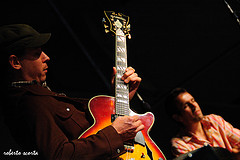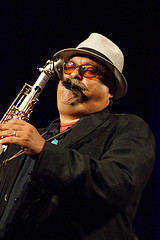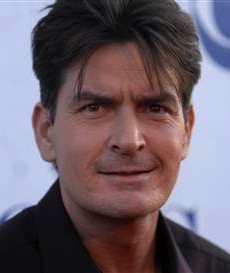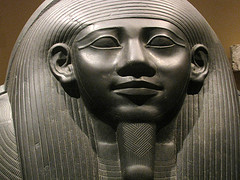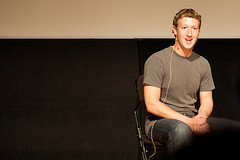I set up a blog on Blogspot (now Blogger) back in 2000. I haven’t posted anything there since 2009 and, frankly, my activity on said blog—universal destroyer, inc.—was pretty spotty. For example, I posted nothing at all in 2004 or 2005, bracketing this lack with six posts in ’03 and four in ’06.
I was re-reading my posts last night and was struck by several things, chief among them that I used to indulge in a highly poetical style of writing. For example:
formidable jaws gaping wide – who will clean these teeth? lambswool clotted with blood, crown and throne up-ended and shattered. a blizzard of flaming stones, a sea of ground glass. take a step. take a breath. the eyes are open. the ears are listening. what subtle words of destruction and awesome commandments of revelation await? turn away the curve of the earth. peel away the sun. behind the underneath of everything it is slumbering now. it is dreaming then. now: AWAKEN
Similarly:
plastered to the thick of it. daring to blush in anguish. several more instances of that and we will have an entire catalog. just think, us, we, the morning after the apocalypse, which everyone thinks means death and dying destruction, but, of course, the word simply means “revelation.” what do we fear to confront revealed before us? the veil rent, the bandaid removed with a quick, skin-shredding yank? as if this situation were not “real” and, when facing the brunt of the real real, we will evaporate, obliterated by this uncompromising, uncompromised force. who told us the world is not real and we have to wait and see the real thing later, after death, when the universal death leaps up onto the stage and everything be laid terrible waste? who makes brains think this way?
I was also very partial to cryptic philosophizing:
The “Temporary Autonomous Zone,” however, may be the last refuge of the slacker – or merely the dream of the quiet suburban home where anything goes as long as the doors are closed and the shades drawn (and volume is kept to reasonable levels). As the structures solidify, the gaps too become institutionalized, disciplined. Anything completely outside the system, is irrelevant to it. Think different.
Along the same lines:
The forces of chaos can only be circumscribed – no thing or agent penetrates to the heart, because, unlike order, chaos is primal, the fundamental state – order is an afterthought, epiphenomenal, and the evolving persistence of chaos demands ever increasing energy expenditure on the part of the order-worshippers. Their scheme is a house of cards. The meanings they erect are fetishes to the ego and vain ambitions. There are local victories, of course, subjugated zones, degrees of tolerance. And, naturally, what has been done, will always have been done – this is the nature of occurence. But the goal to which they aspire – permanent, unassailable control – is an illusion, though it can be real enough in specific, timebound circumstances.
Indeed, I frequently wrote about chaos, ethics, and nihilism back then, as well as the war on terror (particularly in 2002 when I was blogging most actively and the war was new, not something that had been grinding on for a decade). I also wrote about music, sometimes like this (written, if I’m not mistaken, about Meshell Ndegeocello):
and reminded yesterday in the presence of an androgynous funk sorceress of the power of music. this is materialist mysticism. no gods. no beyond. no elsewhere. music, generated and evaporated in the flux of time. that we can spend our time this way, dancing, playing. and every religion on earth a construct, a convention. “would you walk the path of righteousness if you knew that there was no heaven, no god, no eternal reward?” many would hesitate; many more would simply walk the path, realizing that that too is one way to live here on earth, to reenact the dramas of faith, the carnival of belief. not believing is possible as well. knowing is possible. not knowing, also. but a bunch of humans together under the spell of music, the energy focused and broadcast through one particularly active node, nodding, funking, precipitating the flow. we’re in it too.
And once like this:
“war is their reality; music is their escape.” saw this on the side of a train this morning advertising some show about people in the military (the “service,” as it is called – they always say that soldiers “serve,” rather than “obey”). picture of a soldier with headphones pressed to his helmet. many consider music an escape, though, more accurately I suppose, you’d have to say that music is an “avenue of escape” or a “line of flight” [deleuze/guattari]. we escape through music to somewhere else. where is that place? different musics describe/conjure up different places/spaces. trungpa rinpoche wrote, “true escape is impossible.” that is, the escape afforded by music is a false escape. why? because it is stationary, insular, solipsistic. “in my head” [black flag] the statement should be reversed: “music is their reality. war is their escape.” music takes place in our heads, a construct of our minds. it is an escape only in the sense that sleep or dreaming is an escape. war, on the other hand, takes place “out there” in the world. in fact, it consists primarily of conquering and occupying territory, contesting or maintaining geographical boundaries, enforcing or preventing specific physical movements by actual human bodies. war takes us outside of our heads; it explodes heads (the true seat of music). war also sets aside every convention and expectation of civil society (the real reality for many). war frees the warrior, the soldier, from the inhibitions and codes of this society, in fact, often demands that he leave them behind in order to triumph in victory. in this sense, it is an escape, and its idolators have often celebrated it as a return to the origin, the essence, to reality in its realest sense, a liberation from the false fetters of civilian life. of course, there has always been a specific music of war and, in fact, the regimented beats of popular music are derived from the martial beats of war. so, in this sense, the reality of music is war and, again, it provides no real escape from it (since, at its core, it is an expression/extension of it). etc….
And where did this walk down memory lane lead me? First to the insight that some things haven’t changed much. I am still obsessed with music, metaphysics (“Why is there anything at all instead of just nothing?”), and ethics in a world without God. On the other hand, my thoughts dwell less and less on chaos, war (for the time being), and political paranoia.
Secondly, and this is sort of what this post is about, it pointed out to me how much I can forget about myself, about both what I have written over time (and I’ve been writing regularly and obsessively for more than 25 years) and how I have written. My style is tighter now, more focused (at times), and far less likely to veer off into the oracular. Remembering this latter tendency, however, I can’t help but feel its absence as a kind of loss.
The web is a memory bank. It remembers what we have forgotten, regardless of whether that forgetting was intentional or just the way things go. For this reason it can serve as a powerful tool for self-reflection and, when we’re lucky, illumination.
Of course, it also means that the web may be the only thing that remembers us after we’re gone. Indeed, to the extent that our web-published musings go unread and unnoticed, it may be the only thing that remembers us now.
PS. For the curious, the title of my post comes from the amazing Funkadelic piece, “March to the Witch’s Castle.” That song is about soldiers returning from Vietnam but also addresses the broader human problem of self-awareness in the face of trauma and time’s passing.
 I listened to this episode of the Diane Rehm Show last night and became increasingly depressed about China’s human rights record.
I listened to this episode of the Diane Rehm Show last night and became increasingly depressed about China’s human rights record.
